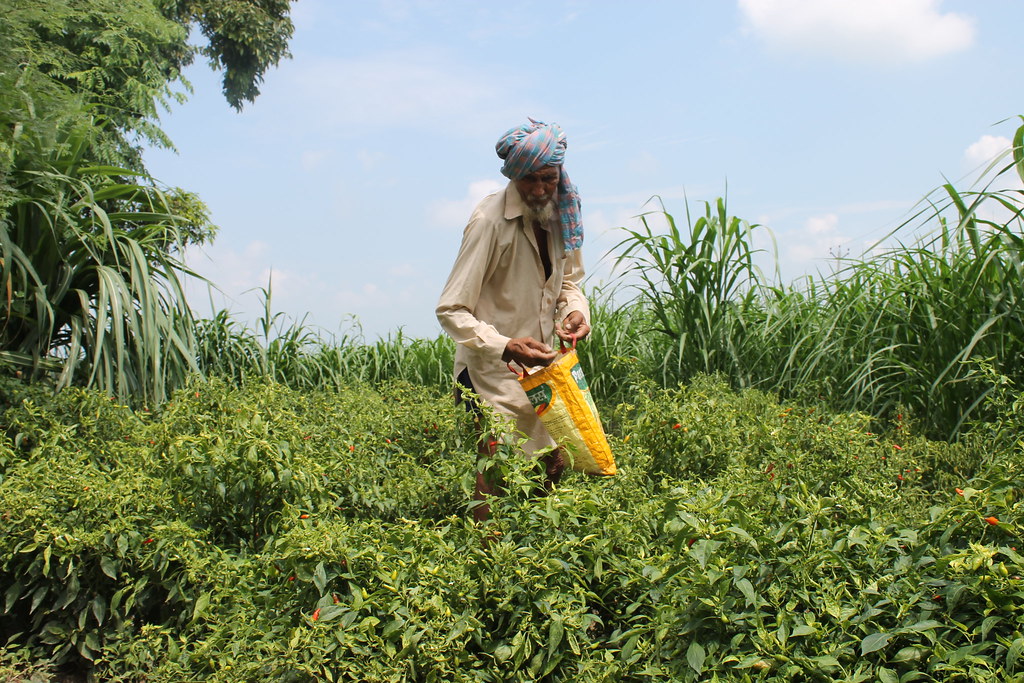Web series 2: Multidimensional resilience – smallholder producers managing risks

How to ensure resilience of smallholder production systems in times of crisis? How farmers and forest producer organizations (FFPOs) maintain functionality during and after the disturbances, and mitigate potential losses in the smallholder value-chains? What is the current and future FPPOs capacity to respond to climate hazards and non-climate stresses such as Covid-19 pandemic?
In the face of COVID-19, smallholder farmers and forest producers face the challenge of how to balance short term shocks and longer-term risks such as climate change. One of the impacts of the COVID-19 crisis is the disruption of agricultural and forestry supply chains and a re-shuffling of actors. These critical issues will be discussed with forest and farm producer organisations (FFPOs) in an international web event series organised in three sessions between 9 and 11 June 2020.
The event is hosted by Food and Forest Development Finland (FFD), AgriCord, and the Forest and Farm Facility (a partnership between FAO, IIED, IUCN, and AgriCord) in collaboration with the Asian Farmers’ Association (AFA) and the Pan-African Farmers’ Organization (PAFO). The conference includes a series of web-seminars with pre-recorded and live interactive consultations.
The goals of the event are:
- To gain understanding of FFPO responses and strategies (locally, nationally, regionally) in thriving greater resilience, with specific focus on climate change and Covid-19 responses.
- To engage institutional stakeholders on the agenda, increase their awareness in FFPO resilience, and to provide recommendations to these actors, and to exchange best practices and tools for increased resilience.
- To formulate common policy positions to promote resilient pathways to resilience, with specific focus on climate change and Covid-19.
The conference will be in English.
Please find below indications for registration in all three sessions.
- Register here for International web consultation and conference, 9 June: registration 9 June.
- Register here for International technical workshop, 10 June: conference registration 10 June.
- Register here for International web conference, 11 June: registration web conference.
COVER PHOTO CREDIT:
Climate Change, Agriculture and Food Security (CCAFS)
Anna Bolin
Senior Researcher, International Institute for Environment and Development (IIED)/Forest and Farm Facility
Noora Simola
Climate and Forest Expert, Food and Forest Development Finland
Noora has vast experience in development cooperation. Her expertise is in organizational development, climate change, forestry, carbon accounting, program management, training and participatory methods.
John Kerr
Department of Community Sustainability, Michigan State University
John Kerr received his Ph.D. in applied economics in 1990 at the Food Research Institute, Stanford University. Before joining the faculty at Michigan State University in 1999 he worked at the International Crops Research Institute for the Semi-Arid Tropics (ICRISAT) in Hyderabad, India, and the International Food Policy Research Institute (IFPRI) in Washington, DC.
His research interests are in international agricultural development and natural resource management. Focal areas of his research have been on adoption of agricultural technology and natural resource conservation practices, collective action and property rights related to natural resource management, and the interaction of these things with rural poverty in developing countries. He has lived in and conducted research in India, Mexico, and Egypt, and conducted short-term research in many other countries as well. Current projects include one funded by the National Science Foundation’s Interdisciplinary Behavioral and Social Science program titled The Effects of Short-Term Incentives on Social Norms and Behaviors, with field work in Qinghai, China, and another funded by the Bill and Melinda Gates Foundation titled AFEX: a technology for addressing seasonality in access to quality cattle feed in India and Africa.
Duncan Macqueen
Principal researcher and leader, IIED/Forest and Farm Facility
Duncan Macqueen is an expert on forest enterprise issues and local to global governance processes that affect forests. He is currently the team leader on forests within IIED, overseeing work under an overall goal of ‘resilient forests, prosperous people’.
Duncan Macqueen is an experienced forest research and development practitioner. He has delivered impacts in collaborative programmes across 30-plus countries in Africa, Asia, Latin America and the Caribbean.
He has been a conceptual pioneer in the design and implementation of programmes to sustain locally-controlled forest business. Impacts have included new: (i) agroforestry system improvements; (ii) funding facilities for forest and farm producer organisations; (iii) training tools and programmes for business start-up development, risk self-assessment and business incubation; (iv) labelling options for fair trade forest businesses; (v) tiered organisational structures between producer groups that aggregate product and power; (vi) effective policy advocacy positions; and (vii) knowledge and learning products for a range of audiences.
Over the last 27 years he has authored academic, practical and policy outputs covering agroforestry tree improvement, locally-controlled forest business, forest-linked organisations, value chain developments (in timber, non-timber forest products, biomass energy and ecotourism), forest climate strategies, forest governance and forest development ethics. Recent books include titles such as ‘Democratising Forest Business’ and ‘Forest Business Incubation’.